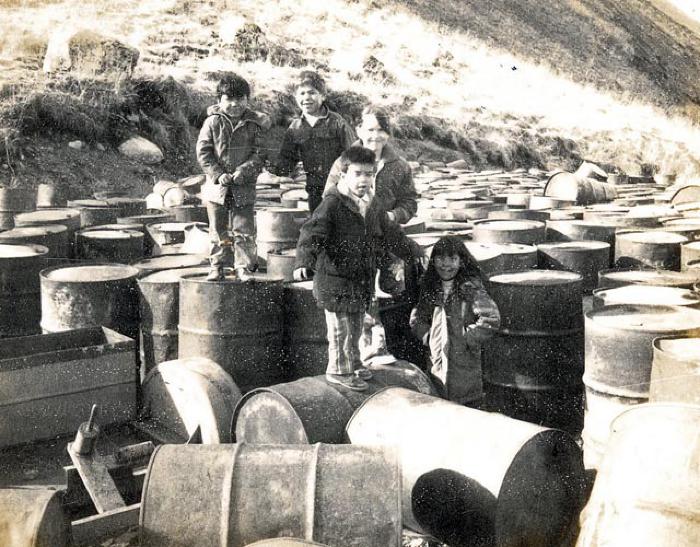Barrel — Puuc’kaaq

The Alutiiq word for barrel—puuc’kaaq—comes from the Russian word bochka, also meaning barrel. This link reflects the use of barrels for bulk storage on sailing ships in the early historic era. Russian traders imported grain, beads, and many other commodities to Alaska in wood barrels. Assembled from wooden staves bound with a series of hoops, barrels were strong, air and watertight, and good at protecting their contents from vermin. They could also be rolled easily on and off ships.
In Kodiak, Sitka, and California’s Fort Ross, the Russian American company employed coopers, skilled craftsmen who made and refurbished wooden barrels. In the 1850s, Russian traders on Kodiak began filing barrels with salted salmon for use in other colonies. However, salting techniques were poor and the fish often spoiled.
In the American era, Kodiak entrepreneurs perfected salting salmon, establishing salteries in productive fishing locales. These operations were fairly simple, but they required a cooper to fashion the barrels needed to hold the salted fish. As such, barrel parts are among the artifacts that appear in Kodiak’s historic sites. In Karluk lagoon, for example, coopers made barrels with lumber imported from Afognak Island.
Alutiiq Elders recall playing with barrel hoops as children, amusing themselves by rolling and chasing the hoops. In the mid-twentieth century, the use of wooden barrels faded as salting salmon became less common. However, a new type of barrel began appearing in Alutiiq communities. Oil barrels were shipped to villages with fuel for oil-fired furnaces.
